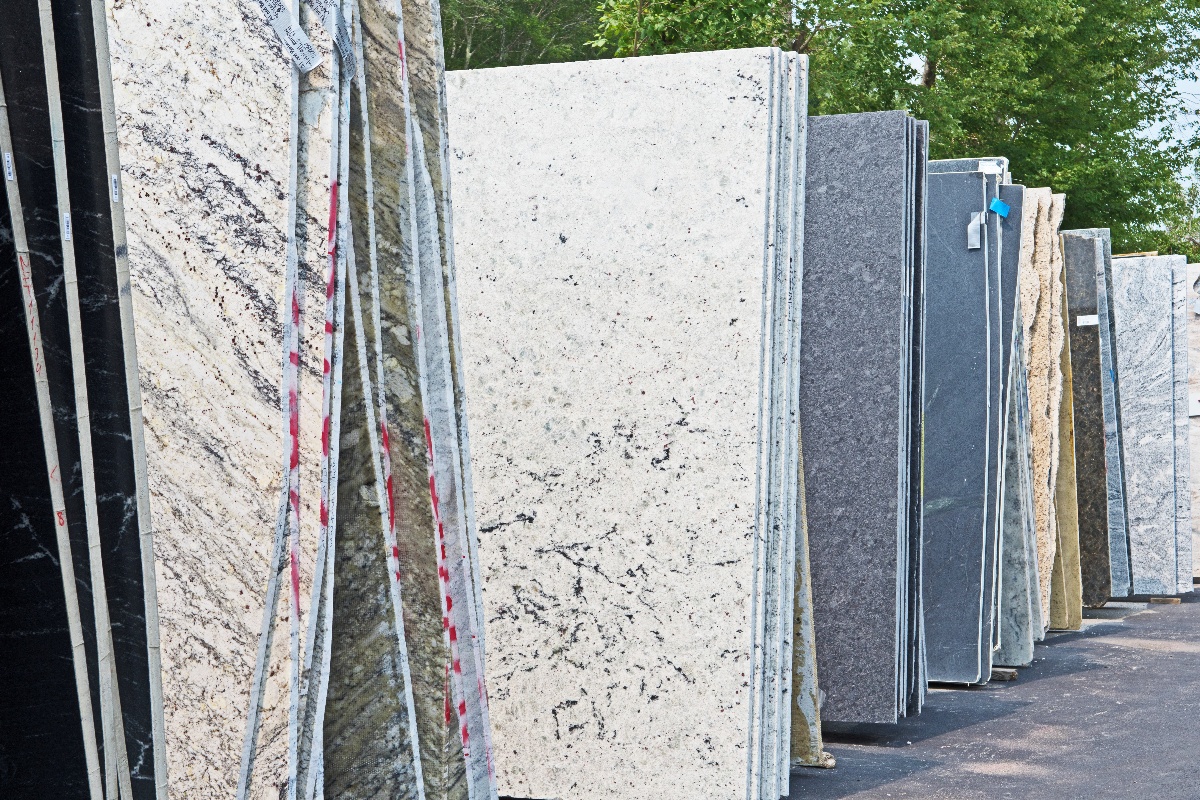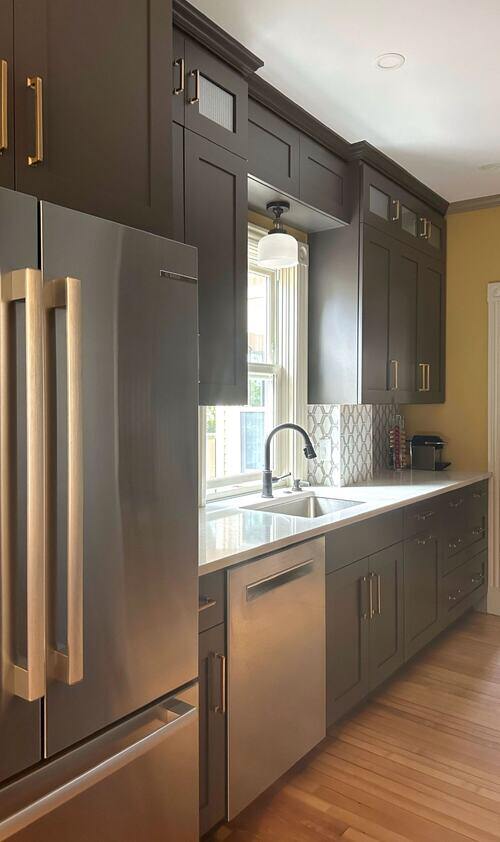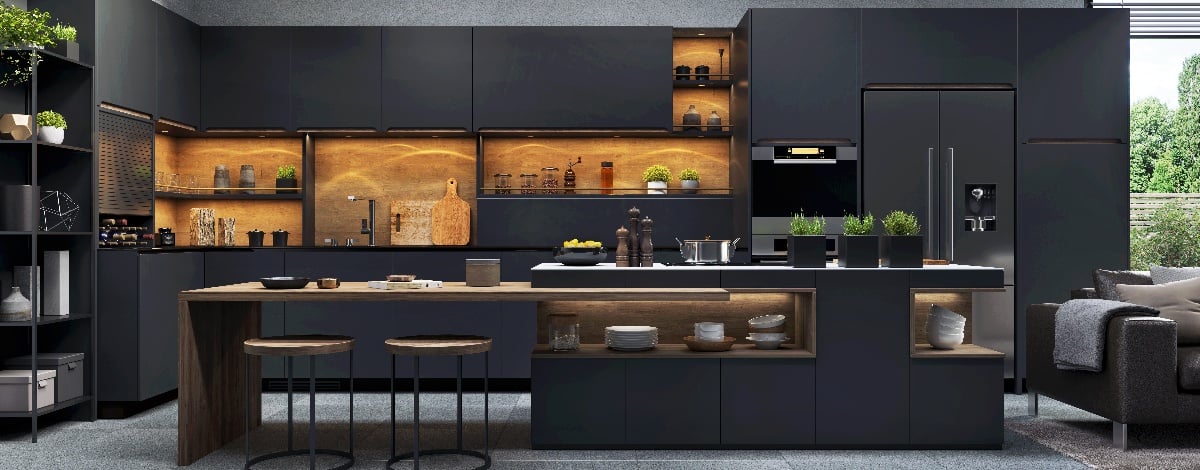Granite and quartz are two of the most beautiful and long-lasting options for countertop stone. Whether you are renovating your kitchen or bathroom, your countertop is the gleaming final touch that brings your design together. Your choice in countertop stone provides a gleaming elegance to any room. But which type of stone should you choose? Both granite and quartz share many of the same qualities, but each has it's own unique features that will influence your final choice. Which is best for your kitchen or bathroom?
Let's dive into a helpful comparison between granite vs. quartz for your countertop design.
Origin: Where Granite and Quartz Come From
Granite is a natural type of igneous rock formed out of quartz and feldspar over time. It is the result of lava flows that have cooled and changed over hundreds to thousands of years. It is an ancient stone where unique slabs are quarried all around the world.
Quartz is an artificial stone, over 90% crushed quartz held together with extremely hard resin. Unlike granite, it can be made to order and does not have to be quarried to create new slabs because quartz chips are easily available anywhere in the world.
Appearance: How Granite and Quartz Look Different
Granite countertops can be chosen in a wide range of natural colors including pale gray, vivid green, bright gold, or deep black charcoal depending on which quarry they come from. What makes granite's appearance unique is the grain, usually found in grains of 'flecks' or speckles that flow and burst throughout the surface. This comes from the movement and changes in minerals over time after the initial magma flow that formed the rock.
Quartz is artificial. It can look like almost any other stone including both marble and granite, but always with a shiny, polished surface. Quartz can come in any natural color and grain style, but also any unnatural color and grain, as well. The possibilities are limitless if you can find a manufacturer that offers the colorscheme and style you envision.
Durability: Which is Stronger, Granite or Quartz?
Both granite and quartz are extremely hard and nearly impossible to chip or scratch with normal daily activities. Granite countertops can last for tens to hundreds of years, if properly cared for. This is why granite counters, tables, mantles, and other beautiful domestic surfaces have been popular for centuries.
Quartz slab is designed to be very durable. It also does not chip or scratch easily due to its extremely dense surface. While newer, quartz is often chosen for kitchens, laundry rooms, and bathrooms with high traffic and potentially damaging activities because it is so resiliant.
Waterproof: Are Granite and Quartz Waterproof Countertops?
Granite is a naturally porous stone. This means that if could potentially absorb water or chemicals, become discolored, or take damage due to moisture. However, granite countertops are rarely at risk. Granite countertops are sealed to make them waterproof and should be resealed every two to five years to keep them that way.
Quartz is not porous. Because it is formed with resin, the surface is perfectly smooth with no holes or flaws that would let water in. This makes it ideal for wet rooms like kitchens, bathroom, laundry, spas, and more.
Weaknesses: What to Know About Granite and Quartz
Granite is strong, the second hardest natural stone after diamond. But it can be damaged by moisture. If you choose granite countertops, sealing and occasionally resealing your countertop is an absolute must. The seal can also be damaged by extended exposure to acids like vinegar or citrus, so wipe up potentially caustic spills.
Quartz seems impervious, but it's actually weak to both extreme heat and caustic acids. This is due to the resin that bonds the slab together. Extreme heat can discolor and even begin to melt the resin, while acids can eat away at the resin and damage the surface adhesion. This means that acidic spills could damage both sealed granite and quartz.
Price: Which is Higher Priced, Granite or Quartz?
Granite is a surprisingly affordable stone, for it's prestige and beauty. Of course, higher priced granite includes high-grade stone, thicker slabs, and rare types of granite from quarries on the other side of the world. But you can usually find a gorgeous slab in your region and price range.
Quartz is typically slightly higher priced due to its weight, density, and engineered qualities, but compares to luxury granite in the upper price ranges.
Granite vs. Quartz, Which is the Better Countertop?
Both granite and quartz make excellent countertop choices. Both are heavy, durable, and long-lasting. They both share a weakness to acid, but are otherwise impervious. Granite is timeless, with a beautiful selection of natural colors and grains, while quartz offers both imitations of other stones and unique colors and styles.
The true choice lies in your preferences for natural vs. artificial stone, the look, the feel, and how well available slabs suit your personal style. To discover the granite and quartz countertop options to choose from, contact us today. The kitchen and bathroom pros at Edesia will be glad to take you on a tour of countertops until you find the perfect match.











